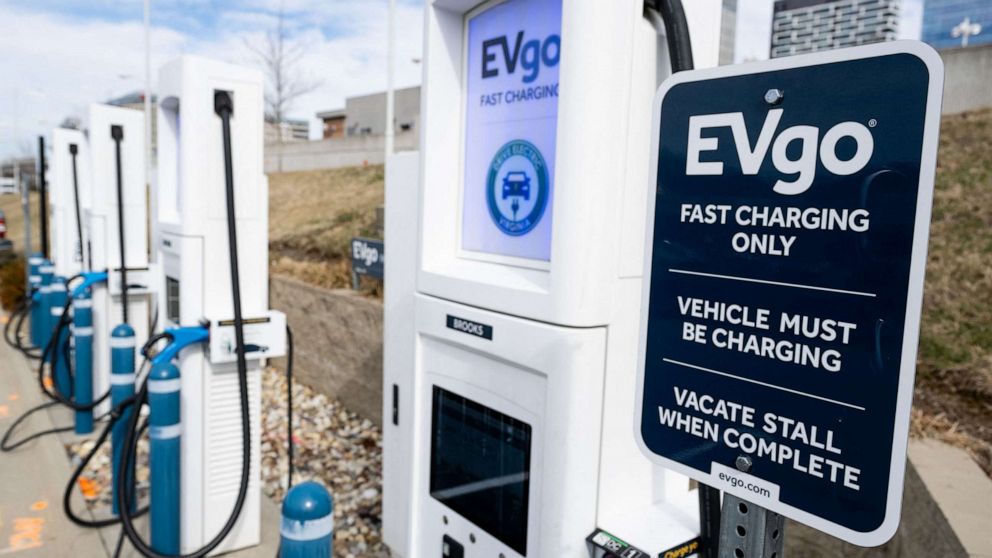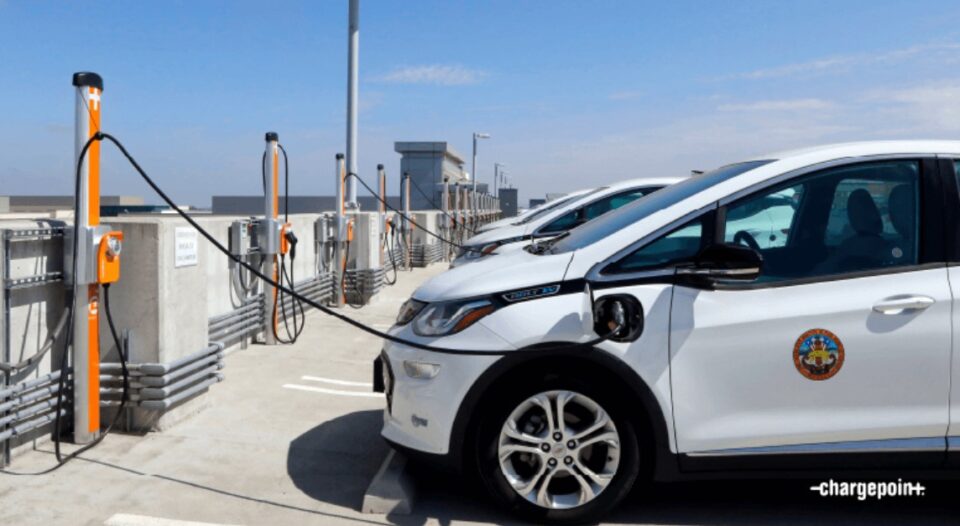How to Make Smarter Decisions in EV Investments by Buying EV Charging news
How to Make Smarter Decisions in EV Investments by Buying EV Charging news
Blog Article
Leading EV Charging Information: Trick Updates on Framework and Innovation

Recent Developments in Fast-Charging Innovation

Additionally, advancements in battery innovation, consisting of improved thermal administration systems and greater energy density batteries, enhance fast-charging abilities. These growths mitigate the danger of battery destruction during rapid charging, ensuring longevity and performance for EV owners.
Furthermore, the integration of wise billing remedies is enhancing individual experience, making it possible for real-time monitoring and dynamic prices versions. EV Charging news. This adaptability permits drivers to enhance charging times and prices based upon grid need
As car manufacturers remain to purchase fast-charging networks, the collaboration between market stakeholders is critical. Partnerships between charging station suppliers and auto manufacturers are paving the way for extensive protection, eventually promoting a much more robust EV environment. These improvements are crucial in supporting the shift to sustainable transportation.
Government Initiatives for Charging Growth
Government campaigns play an important duty in the growth of electric car (EV) charging infrastructure, facilitating the transition to lasting transport. Different federal and state programs are being implemented to enhance billing availability, minimize the financial concern on customers, and advertise the adoption of electric lorries.
Significantly, the U.S. federal government has actually assigned significant funding through the Framework Financial Investment and Jobs Act, which earmarks $7.5 billion for EV billing network advancement across the country. This funding is aimed at releasing thousands of brand-new charging terminals, especially in underserved areas, thus addressing array stress and anxiety amongst prospective EV customers.
Furthermore, numerous states are establishing legislation to simplify the permitting procedure for charging terminal installments, which is important for accelerating release. Incentives such as tax obligation credits and refunds for both consumers and companies are also being presented to urge the setup of billing infrastructure.
Moreover, public-private collaborations are increasingly coming to be a focus, leveraging personal financial investment to complement government financing. These campaigns underscore a joint approach crucial for constructing a efficient and comprehensive EV billing network, inevitably contributing to a greener and more sustainable future.
Ingenious Battery Solutions Enhancing Efficiency
Revolutionizing the landscape of electric automobile (EV) modern technology, innovative battery services are substantially boosting performance and performance. Developments in battery chemistry, especially with lithium-sulfur and solid-state batteries, are bring about increased energy density, which allows for longer varieties and faster charging times. These brand-new battery kinds have the possible to surpass standard lithium-ion batteries by using greater capabilities while reducing weight, therefore boosting total vehicle performance.
Moreover, developments in battery management systems (BMS) are enhancing energy usage and extending battery lifespan. Smart formulas keep track of battery health and wellness and performance, enabling real-time adjustments to charging and releasing procedures. This not only enhances the efficiency of the battery yet additionally makes sure a much more sustainable and reputable energy source for EVs.
Furthermore, the assimilation of recycling technologies is addressing the ecological impact of battery manufacturing and disposal. Advancements in second-life applications for EV batteries are facilitating their usage in power storage systems, adding to a circular economic situation.
As these ingenious battery options remain to evolve, they assure to transform the EV market, making electric lorries extra accessible and appealing to a broader audience while supporting worldwide sustainability goals.

Collaboration Between Automakers and Charging Networks
Recognizing the vital requirement for a durable billing facilities, car manufacturers are significantly collaborating with charging network companies to enhance the EV possession experience (EV Charging news). These partnerships aim to create a smooth billing ecological community that profits customers and supports the shift to electric vehicles
Significant automotive brands are signing up with pressures with well established billing networks to great site broaden their charging terminal insurance coverage, making sure motorists have access to dependable and convenient billing choices. For instance, partnerships with networks like ChargePoint and Electrify America permit car manufacturers to integrate billing remedies directly into their lorries' navigating systems, directing individuals to the nearest terminals and giving real-time accessibility updates.
In addition, these partnerships commonly cause the growth of fast-charging innovations that significantly minimize the time needed to reenergize an EV. By pooling sources and know-how, automakers and charging networks can introduce faster, developing solutions that satisfy the expanding demand for electrical wheelchair.
On top of that, joint efforts might also result in even more standardized charging procedures, which can alleviate consumer complication and advertise broader EV fostering. On the whole, these tactical partnerships are crucial in constructing a reliable and easy to use charging facilities that fulfills the demands of an expanding electric car market.
Difficulties Encountering EV Billing Infrastructure
As the electric car market continues to grow, a number of obstacles are appearing that hinder the development of an extensive charging facilities. Among the key obstacles is the inadequate number of charging stations, especially in underserved and rural metropolitan areas. This void produces range anxiety among potential EV buyers, preventing them from making the switch.
Furthermore, the lack of standardization in charging innovation complicates the infrastructure landscape. Variations in plug types and billing rates can develop complication for customers and boost functional complexities for charging network operators. The integration of billing terminals right into existing electrical grids positions significant obstacles. Several areas deal with capacity constraints, requiring substantial investments in grid upgrades to accommodate raised need.
An additional pressing concern is the high expense associated with the installment and upkeep of charging his explanation stations, which can be an obstacle for both personal organizations and public entities. Lastly, regulatory difficulties and zoning limitations can postpone the deployment of charging facilities, hindering progression in broadening important solutions. Attending to these challenges will be critical for fostering a durable EV ecological community that sustains the transition to sustainable transport.
Final Thought
In final thought, the continuous innovations in EV billing modern technology, sustained by significant government initiatives and ingenious battery options, are critical for the development and efficiency of electrical car infrastructure. Cooperations in between car manufacturers and billing service providers further improve station coverage, dealing with the growing demand for available charging options. Despite challenges that persist within the EV charging landscape, these developments signify a favorable trajectory in visit this website the direction of a much more sustainable and effective electric car community.
Innovations in charging framework have actually led to the advancement of ultra-fast chargers qualified of delivering up to 350 kW of power, considerably decreasing charging times. Variants in plug kinds and charging rates can produce confusion for customers and raise functional complexities for billing network drivers.In conclusion, the ongoing innovations in EV charging technology, sustained by considerable federal government efforts and ingenious battery solutions, are crucial for the growth and efficiency of electrical car infrastructure. Cooperations between car manufacturers and charging providers better enhance terminal coverage, resolving the growing need for available billing options. Regardless of challenges that linger within the EV charging landscape, these advancements signify a positive trajectory in the direction of a much more effective and sustainable electric lorry community.
Report this page